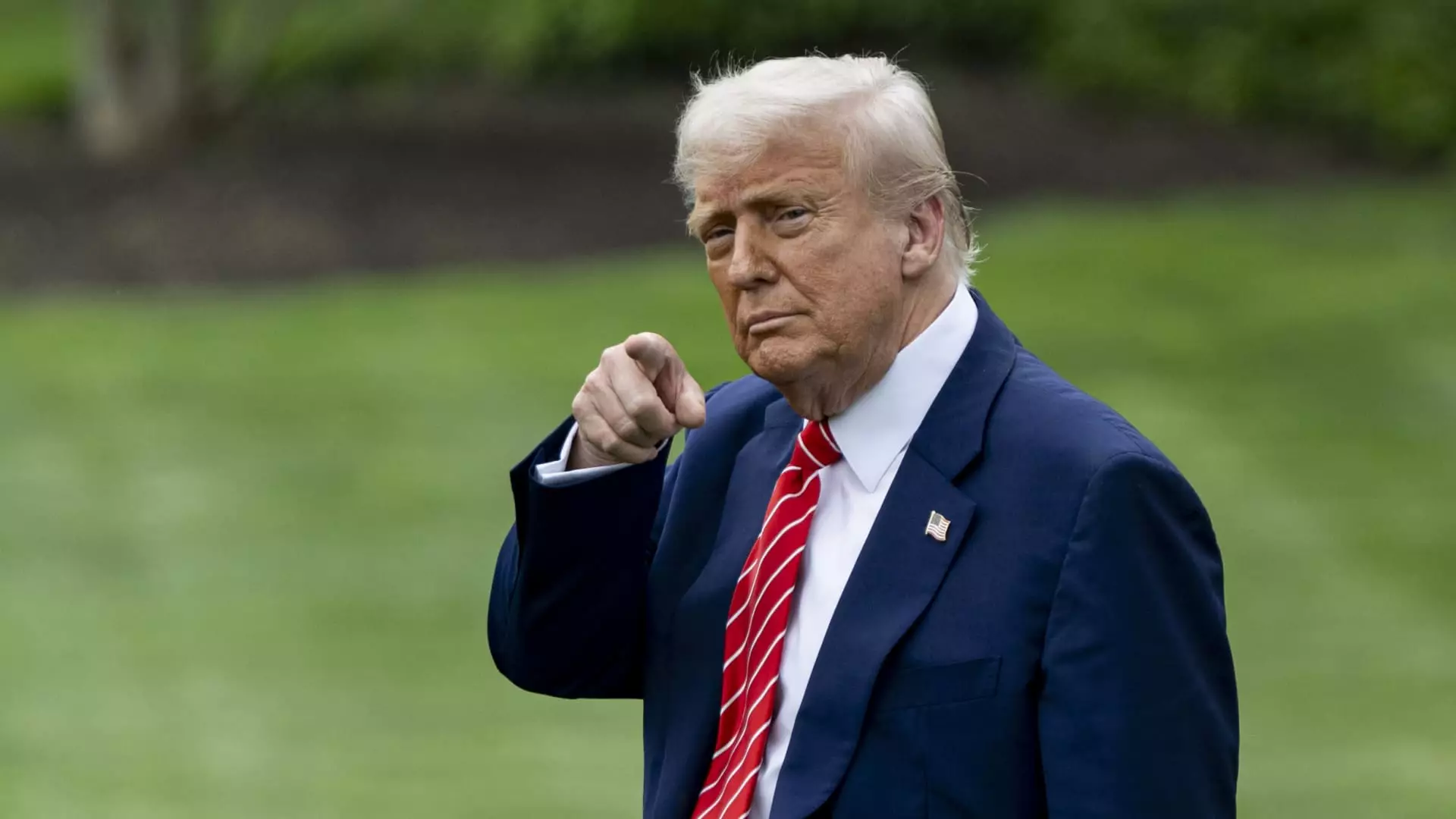In the unfolding drama of American fiscal policy, President Donald Trump’s multi-trillion-dollar spending package has taken an unexpected turn, revealing provisions that raise eyebrows and ignite concerns. Among these is Section 899, a clause that has stirred significant debate and pushback from Wall Street, labeled by critics as a “revenge tax.” Designed to impose up to a 20% tax on foreign entities engaging with the U.S., this provision sets off alarm bells not just for investors but for the broader economy as several layers of unintended consequences loom.
Historically, taxes are often viewed as necessary evils to fund government operations, but when they become punitive, as seen in Section 899, the ramifications can spiral out of control. The language within this provision is fraught with hostility, aiming to retaliate against nations that impose what are described as “unfair foreign taxes” on U.S. companies. This isn’t merely a money-making strategy; it hints at a broader narrative of economic nationalism—an echo of protectionist policies that could leave a dent in America’s global financial standing.
Collateral Damage: The Asset Management Industry
As the wheel of policy enacts change, the asset management industry finds itself in the crosshairs, with predictions of significant consequences looming ominously on the horizon. According to Ernst & Young, should Section 899 pass, passive investment income might not just receive heightened scrutiny but face withholding taxes that could soar as high as 50%. This isn’t an isolated issue; it could profoundly shape the landscape for hedge funds, private equity, and cross-border investments, sending shockwaves through international market dynamics.
The Investment Company Institute vehemently warns that the current wording of Section 899 could act as a deterrent for foreign investments poised to flow into the U.S. economy. There is a delicate balance between capturing revenue and maintaining an attractive market for global investors. If Section 899 is seen as an unfriendly invitation for capital, the fallout could be detrimental to growth prospects, especially in our markedly interconnected financial world where trust and stability are paramount.
An Aggressive Stance on Foreign Taxation
What makes Section 899 particularly alarming is its aggressive posture towards international taxation. The provision proposes an escalatory tax system that could see annual increases of 5%, capped at 20%. Under its umbrella, it encompasses a range of tax types—from unduly taxed profits to novel digital services taxes—all of which could render the business environment for multinational corporations exceedingly complex and less appealing.
Daniel Bunn, president and CEO of the Tax Foundation, succinctly captures the backlash from such expansive measures: “All businesses that are operating in the U.S. from a foreign headquarters will face that.” This not only alienates foreign organizations that contribute to the economy but undermines the critical concept of free trade that has fueled economic growth for decades. Furthermore, if implemented, these taxes could spur retaliatory actions from other countries, thereby escalating into a tit-for-tat tax war that ultimately risks the stability of international markets.
A Bipartisan Quandary: Support and Opposition
Despite its contentious nature, Section 899 has garnered some degree of support within partisan ranks, particularly among Republican House Ways and Means Committee members. Their enthusiasm seemingly stems from a desire to compel foreign entities to amend their tax structures through the threat of heavy taxation. This conflation of punitive taxation with foreign policy objectives signals a fundamental misunderstanding of diplomacy in our modern world, where collaboration is often more productive than confrontation.
Yet, the bill’s approval hinges on the delicate balancing act within the Senate, where the business community’s alarm bells ring loud. The Senate’s deliberations carry the weight of uncertainty not just for Wall Street but also for millions of Americans whose livelihoods could be indirectly affected by policy swings. While proponents tout that Section 899 could raise an estimated $116 billion over the next decade—sought-after revenue for crucial priorities—one must question if the gains outweigh the very real dangers of a fractured international economic landscape.
In invoking Section 899, policymakers must tread with caution, recognizing that the fixation on retribution can overshadow the careful stewardship of economic relationships built over years of cooperation and trust. As the Senate weighs this critical provision, the implications of such actions hit at the heart of what it means to participate in a globalized economy: coexistence over hostility, negotiation over strife, and, ultimately, progress forged through collaboration rather than retaliation.

